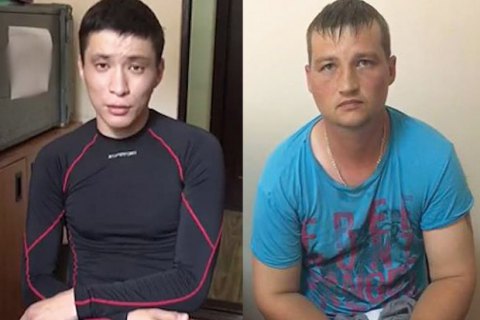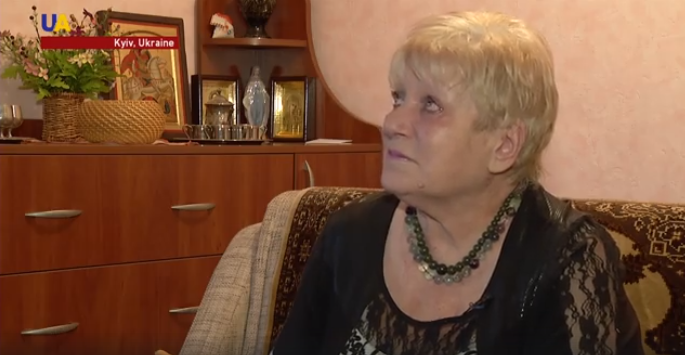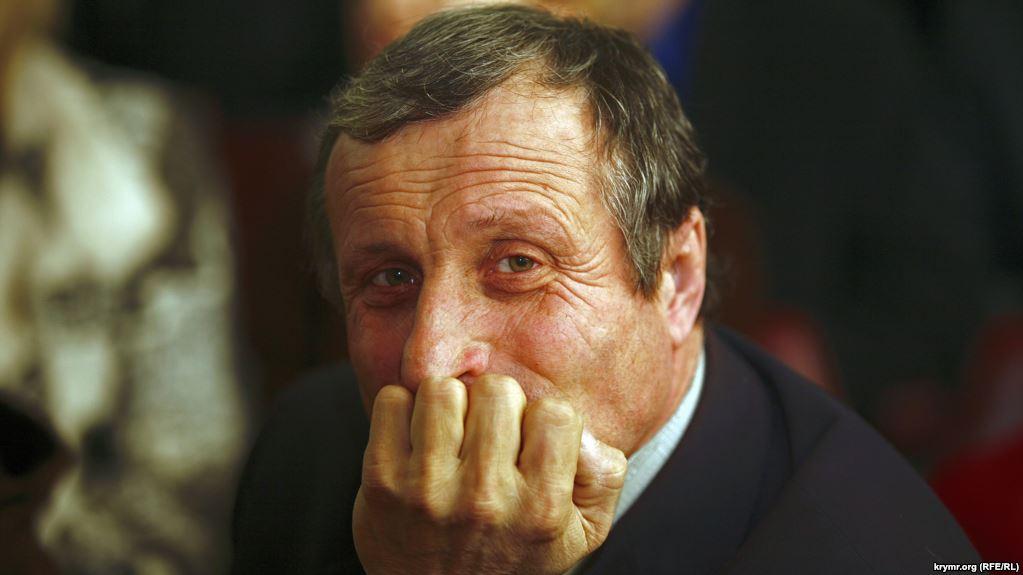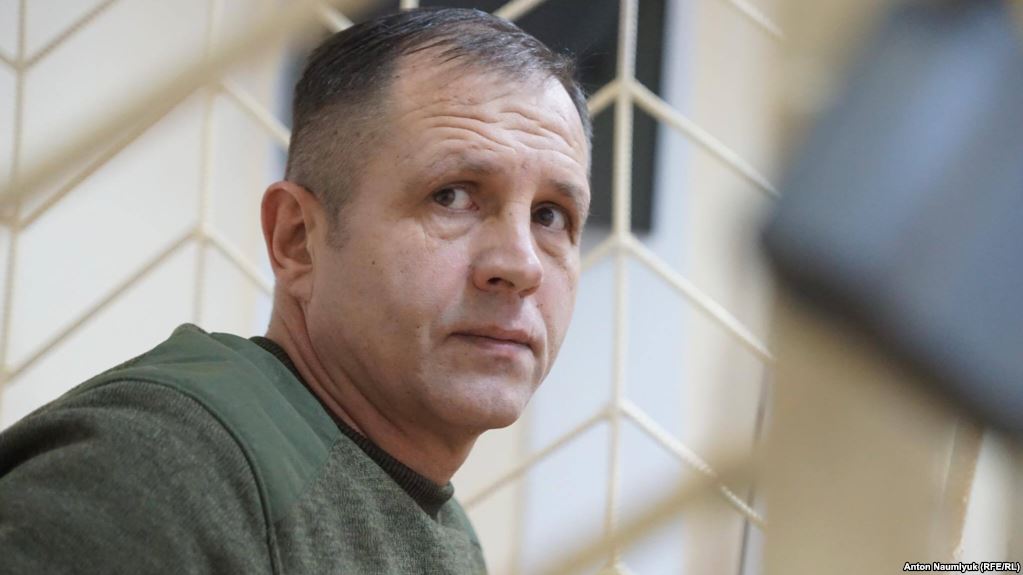On 30 June 2017, a powerboat bearing Russian identification marks was intercepted by Ukrainian military when approaching the shore in Kherson Oblast from the side of occupied Crimea. Two members of the Russian border service (a part of Russia’s Federal Security Service, FSB) who were in the boat were detained. They claim they had strayed from the route and “confused landmarks” during the training.
The volunteer investigative team InformNapalm has identified the names of the two captives: they are junior officers Vladimir Kuznetsov (born in Russian Far East) and Askar Kulub (from Rostov Oblast, a Russian region adjacent to Ukraine).
Initially, a Ukrainian court adjudged them to serve a tiny 15-day administrative arrest for entering the Ukrainian territory in violation of existing rules. On 6 July, after InformNapalm pointed to this information, the Security Service of Ukraine reported on a new indictment against the captives under Article 110 of the Ukrainian Criminal Code: encroachment on Ukraine’s territorial integrity. The article stipulates the punishment of three to twelve years in jail.
What legal status should Russian soldiers captured in Ukraine have?
While quite a lot of Ukrainian public figures have welcomed this latter decision, some commenters have voiced critical remarks on it. The lawyer Yevheniya Zakrevska suggests that two substantial mistakes have been made: one concerning the status of the Russians and another related to the subjective side of the suspected crime.
Firstly, in her view, the captured officers should be recognized prisoners of war. Indeed, they fall within the definition of POWs under the respective Geneva Convention as belonging to a military formation of the power occupying Ukrainian territory. Under the convention, Ukraine does not need any additional reasons to intern them until the end of the conflict (that is, until the full withdrawal of Russian military and civilian personnel from Crimea and Donbas) or a prisoner exchange. The internment does not preclude a possibility of their lawful criminal prosecution and conviction by court.
The question is, therefore, whether the Ukrainian authorities are ready to grant POW status to the Russians.
Secondly, she contends, the incrimination of Article 437 of the Criminal Code (waging an aggressive war) would better correspond to the case. Because the Russian Federation committed the de facto violent change of Ukrainian borders in March 2014, which is prosecuted under Article 110, the Ukrainian court may acquit the FSB officers, who reportedly arrived in already annexed Crimea in December 2016 and so did not personally contribute to that change. Thus the article on aggressive war is more appropriate since it regards the continued crime.
As members of the FSB—a special agency crucial for the ongoing occupation of the Ukrainian territory—the captives should be brought to justice for taking part in the aggression against Ukraine since the first day of their service in Crimea, Zakrevska believes.
Exchanging Russian captives for Ukrainian hostages
It should be noted that from Moscow’s point of view, the situation of the two FSB border guards is different from that of most Russian soldiers seized in Donbas.
Regarding the latter, the Russian government generally denied their belonging to its regular military structures and alleged instead that they were “volunteers” serving under the command of “DNR” or “LNR” separatists. Recently it displayed such a denialist stance again, when the contract soldier Viktor Ageyev was captured in Luhansk Oblast. In contrast, the FSB acknowledged that the two border guards seized in South Ukraine on 30 June indeed were its members and expressed hope that Ukraine transfers them back to occupied Crimea.
Read more: Ukrainian army kills Russian officer, captures Russian contract soldier in Donbas
This fact seems fortunate given that dozens of Ukrainian citizens have been held hostage in Russia and Russian-occupied Donbas and Crimea, and until recently there were no signs that the Kremlin and its proxies were going to allow their return home. Ukrainian politicians, such as the head of the delegation to the NATO Parliamentary Assembly Iryna Fryz, stress that a prisoner exchange is now the only real way to free the Ukrainians from Russian captivity. There has been a successful experience last year when President Putin yielded to strong international pressure and swapped the Ukrainian pilot Nadiya Savchenko (who had been kidnapped in Donbas and taken out to Russia in 2014) for the Russian military intelligence officers Aleksandr Aleksandrov and Yevgeny Yerofeyev.

The FSB’s current interest in returning Vladimir Kuznetsov and Askar Kulub reminds us of the story of nine paratroopers from Russia’s Kostroma Oblast. They were seized in Donbas at the end of August 2014, when the most fierce fighting took place. Russian officials, including Putin himself, publicly pronounced that the soldiers “got lost” during the military training (the current explanation on Kuznetsov and Kulub is basically the same). At the time, regular Russian military surrounded Ukrainian forces near Ilovaisk and Ukraine had to return the “Kostroma paratroopers” to Russia without a proper investigation and trial.

Read more: Russian soldiers in Ukraine: an investigation
Now, as Ukraine’s stand is much more firm than in August 2014, the goal of exchanging the members of the FSB occupation force for the Ukrainian hostages of the Kremlin must be pursued. To achieve it, Ukraine needs the support of international organizations, political and opinion leaders, and the wider public.
On every possible occasion, Kremlin’s representatives should be reminded that they bear responsibility for their own soldiers, and to return them back, they must release the Ukrainians unlawfully held behind bars. To date, there are 45 Ukrainians held by the Kremlin on political motives, and at least 132 are held as prisoners in occupied Donbas.





